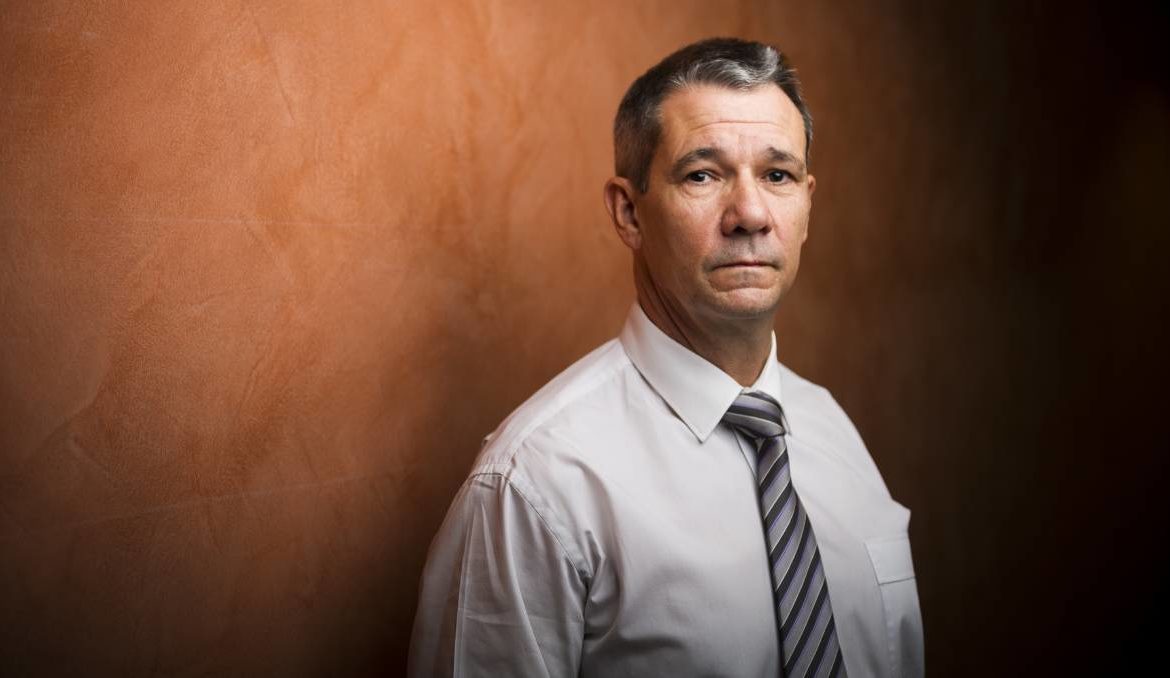news, crime, DPP, ACT courts, coronavirus, COVID-19
Historically high conviction rates plummeted after the ACT allowed more people to have judge-alone trials and took away the right to a trial by jury, the territory’s Director of Public Prosecutions says. Between about 60 and 70 per cent of people who go to trial in the ACT are found guilty of their crimes; the other between 30 and 40 per cent are found not guilty. But the conviction rate shifted to just 12.5 per cent after the Legislative Assembly passed new laws in April. The laws allowed people who wouldn’t otherwise be allowed to have a judge-alone trial – such as accused murderers, rapists, and child sex offenders – to ask to have one during the COVID-19 “emergency period”. The legislation passed in April also removed Canberrans’ right to a trial by jury, as Supreme Court judges could order that a trial be judge-alone – regardless of whether an accused person agreed to the order. In DPP Shane Drumgold’s annual report for 2019-20, the director said eight judge-alone trials had gone ahead as at June 30 this year after the COVID-19 shutdown period. He said the eight judge-alone trials resulted in seven not guilty verdicts. “It is noteworthy that the amendments to the [Supreme Court Act 1933] has resulted in a substantial increase in the number of ‘judge-alone’ trials,” Mr Drumgold said. “This consequently has had an impact on our conviction rate. “These verdicts will have an impact on our statistics.” Shortly after the laws were passed, Canberra’s legal community condemned the loss of the right to a trial by jury. The chair of the ACT Law Society’s criminal law committee, Michael Kukulies-Smith, described the change as “fundamentally unsound and misguided”. Canberra solicitor David Healey said the new legislation meant there was a “real danger” people would appeal judges’ decisions in the future if judge-alone trials were ordered without their consent. “It’s dangerous to leave this amount of discretion in the hands of one judge, noting the various levels of discretion available in the criminal justice system [already],” he said. Convicted gang rape leader Simon Vunilagi, who met his victim at Mooseheads, this year faced a judge-alone trial without his consent. He will be appealing. The DPP’s annual report said the provision removing the right to a trial by jury ceased on June 15, when jury trials resumed in the ACT. People who were previously excluded from judge-alone trials could still ask to have one. The report noted that sex offenders and family violence offenders were unperturbed by the COVID-19 shutdown, as “family violence and sexual offence matters in the financial year remain as high as in previous years”. READ MORE: Mr Drumgold said: “Indeed, total sexual offence trials and sentences completed in the financial year marginally increased compared to the total in the previous financial year.” The director said senior prosecutors in his office’s sexual offences unit had managed to persuade the courts to allow “various comfort measures for victims” while they gave evidence or read aloud their victim impact statements in court. “For example, one victim was allowed to have their pet bearded dragon in the remote witness room, and another was permitted to have regular breaks with the court therapy dogs,” Mr Drumgold said.
/images/transform/v1/crop/frm/fdcx/doc71e1xsu3bo9r7t7nfak.jpg/r13_388_4248_2781_w1200_h678_fmax.jpg
Historically high conviction rates plummeted after the ACT allowed more people to have judge-alone trials and took away the right to a trial by jury, the territory’s Director of Public Prosecutions says.
Between about 60 and 70 per cent of people who go to trial in the ACT are found guilty of their crimes; the other between 30 and 40 per cent are found not guilty.
The laws allowed people who wouldn’t otherwise be allowed to have a judge-alone trial – such as accused murderers, rapists, and child sex offenders – to ask to have one during the COVID-19 “emergency period”.
The legislation passed in April also removed Canberrans’ right to a trial by jury, as Supreme Court judges could order that a trial be judge-alone – regardless of whether an accused person agreed to the order.
In DPP Shane Drumgold’s annual report for 2019-20, the director said eight judge-alone trials had gone ahead as at June 30 this year after the COVID-19 shutdown period.
He said the eight judge-alone trials resulted in seven not guilty verdicts.
“It is noteworthy that the amendments to the [Supreme Court Act 1933] has resulted in a substantial increase in the number of ‘judge-alone’ trials,” Mr Drumgold said.
“This consequently has had an impact on our conviction rate.
“These verdicts will have an impact on our statistics.”
The chair of the ACT Law Society’s criminal law committee, Michael Kukulies-Smith, described the change as “fundamentally unsound and misguided”.
Canberra solicitor David Healey said the new legislation meant there was a “real danger” people would appeal judges’ decisions in the future if judge-alone trials were ordered without their consent.
“It’s dangerous to leave this amount of discretion in the hands of one judge, noting the various levels of discretion available in the criminal justice system [already],” he said.
The DPP’s annual report said the provision removing the right to a trial by jury ceased on June 15, when jury trials resumed in the ACT. People who were previously excluded from judge-alone trials could still ask to have one.
The report noted that sex offenders and family violence offenders were unperturbed by the COVID-19 shutdown, as “family violence and sexual offence matters in the financial year remain as high as in previous years”.
Mr Drumgold said: “Indeed, total sexual offence trials and sentences completed in the financial year marginally increased compared to the total in the previous financial year.”
The director said senior prosecutors in his office’s sexual offences unit had managed to persuade the courts to allow “various comfort measures for victims” while they gave evidence or read aloud their victim impact statements in court.
“For example, one victim was allowed to have their pet bearded dragon in the remote witness room, and another was permitted to have regular breaks with the court therapy dogs,” Mr Drumgold said.
The ACT’s Director of Public Prosecutions, Shane Drumgold, whose annual report looks at the effect of COVID-19 emergency laws on the courts. Picture: Dion Georgopoulos







